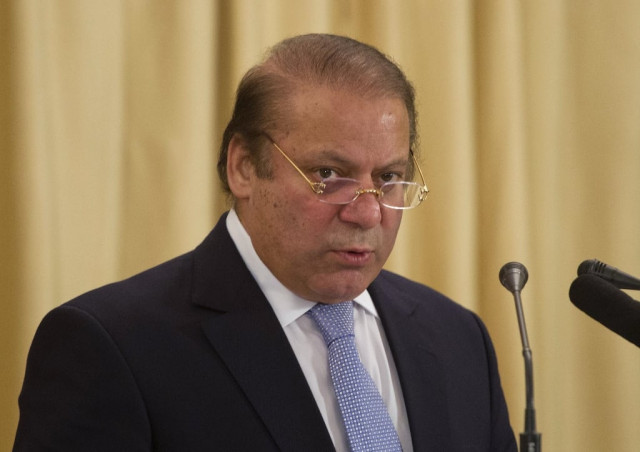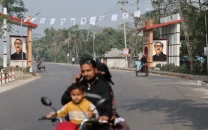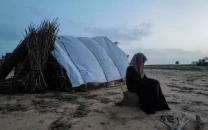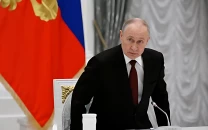PM to India: Let’s set aside the baggage of history
Nawaz says the two countries have no option but to normalise relations for the betterment of their people.

Prime Minister Nawaz Sharif. PHOTO: REUTERS/FILE
Prime Minister Nawaz Sharif has said that Pakistan believes in resolving all issues with India through peaceful diplomacy.
“We have no option but to live in peace in the interest of the people of Pakistan and India and my government is committed to improving relations with India,” the premier said during a meeting with Indian High Commissioner to Pakistan TCA Raghavan at the Prime Minister House on Wednesday.
Adviser to Prime Minister on Foreign Affairs Tariq Fatemi was also present on the occasion, says a press statement issued by the Prime Minister’s Office.
“We need to work towards setting aside the baggage of history, prevailing mistrust and lack of flexibility,” he told the Indian diplomat.
He also spoke about his ‘very good meeting’ with Prime Minister Manmohan Singh in September on the fringes of the UN General Assembly in New York and the one between Sartaj Aziz and India’s External Affairs Minister Salman Khursheed in New Delhi recently. “We should continue to hold regular meetings and interactions at all levels as these will help towards normalising of relations,” Nawaz said.

Expressing his desire to enhance trade relations with India, the premier said the second meeting in October of the Joint Business Council in New Delhi was useful. “We look forward to further interactions between the two ministries of power and commerce to discuss ways and means in moving forward on trade matters.”
The prime minister said there was also a need to increase people-to-people contacts, including visits of pilgrims, and termed it ‘an important confidence-building measure’.
He said Pakistan and India need to institutionalise the mechanism for meetings between their national security advisers to discuss matters
related to terrorism as it would help allay concerns of both sides.
He expressed satisfaction over the current situation at the Line of Control (LoC). However, he called for further strengthening the existing mechanism of meetings at the LoC. Directors general of military operations (DGMOs) of the two sides should meet so that there was no untoward incident in future.
Luncheon of ambassadors
Nawaz hosted a luncheon in honour of a group of ambassadors at the PM House.
Addressing the luncheon in honour of ambassadors the premier stressed the need for converting the existing goodwill with other countries into mutually beneficial partnerships.
“We are looking to working closely with the world in exploring, exploiting and developing this potential and realising the opportunities,” he was quoted as saying in an official statement.
Published in The Express Tribune, December 12th, 2013.



















COMMENTS
Comments are moderated and generally will be posted if they are on-topic and not abusive.
For more information, please see our Comments FAQ